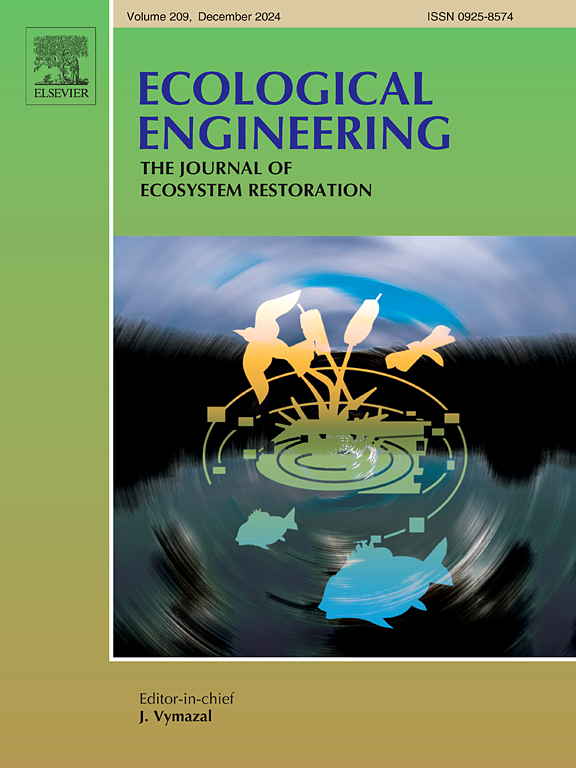湿地的适应性恢复:对原则、研究空白和更好的适应性管理方法的综合回顾
IF 4.1
2区 环境科学与生态学
Q1 ECOLOGY
引用次数: 0
摘要
人们日益认识到,适应复原力对于管理湿地等社会生态系统至关重要。本研究通过工程恢复力、生态恢复力和复杂适应恢复力三个关键框架考察了湿地的恢复力。本文通过五个主要目标对湿地适应性恢复能力的研究进行了综述:确定重要的研究趋势和重点课题;发现研究空白;识别湿地适应弹性文献中的主要主题;明确湿地生态系统可持续性的关键原则;并分析了不同的复原力框架,提出了一种创新的湿地管理方法。研究结果强调,气候变化是影响湿地恢复力的一个核心因素,与人类活动密切相关。通过综合多学科的见解,该研究强调了迫切需要实用的适应性策略来增强湿地的恢复力。通过对弹性原则和框架要素的深入研究,本研究提出了一个新的综合框架,作为更有效的湿地管理途径。本文章由计算机程序翻译,如有差异,请以英文原文为准。
Adaptive resilience in wetlands: An integrative review of principles, research gaps, and ways forward for better adaptive management
Adaptive resilience is increasingly recognized as vital for managing socio-ecological systems, such as wetlands. The study examines wetland resilience through the lens of three key frameworks – engineering resilience, ecological resilience and complex adaptive resilience. This paper presents an integrative review to explore adaptive resilience in wetlands through five key objectives: identifying significant research trends and focus topics; uncovering research gaps; identifying major themes in the literature on wetland adaptive resilience; pinpointing critical principles necessary for the sustainability of wetland ecosystems; and analysing different resilience frameworks to propose an innovative approach to wetland management. The findings underscore climate change as a central factor influencing wetland resilience, closely linked to human activities. By synthesizing multidisciplinary insights, the study highlights the urgent need for practical, adaptive strategies to strengthen wetland resilience. Through an in-depth examination of resilience principles and framework elements, this research proposes a new integrated framework as a pathway for more effective wetland management.
求助全文
通过发布文献求助,成功后即可免费获取论文全文。
去求助
来源期刊

Ecological Engineering
环境科学-工程:环境
CiteScore
8.00
自引率
5.30%
发文量
293
审稿时长
57 days
期刊介绍:
Ecological engineering has been defined as the design of ecosystems for the mutual benefit of humans and nature. The journal is meant for ecologists who, because of their research interests or occupation, are involved in designing, monitoring, or restoring ecosystems, and can serve as a bridge between ecologists and engineers.
Specific topics covered in the journal include: habitat reconstruction; ecotechnology; synthetic ecology; bioengineering; restoration ecology; ecology conservation; ecosystem rehabilitation; stream and river restoration; reclamation ecology; non-renewable resource conservation. Descriptions of specific applications of ecological engineering are acceptable only when situated within context of adding novelty to current research and emphasizing ecosystem restoration. We do not accept purely descriptive reports on ecosystem structures (such as vegetation surveys), purely physical assessment of materials that can be used for ecological restoration, small-model studies carried out in the laboratory or greenhouse with artificial (waste)water or crop studies, or case studies on conventional wastewater treatment and eutrophication that do not offer an ecosystem restoration approach within the paper.
 求助内容:
求助内容: 应助结果提醒方式:
应助结果提醒方式:


